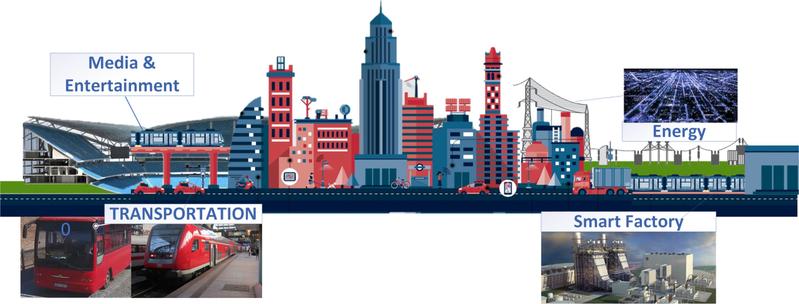
IHP Launches 5G-VICTORI Project for High-Speed Connectivity

5G-VICTORI will verify the functionality of 5G technologies in large field trials taking place in different sites across Europe.
© University of Bristol
A couple of days ago, a first overview presentation of the project 5G-VICTORI coordinated by IHP – Innovations for High Performance Microelectronics was given on 21.06.2019 in Valencia. The Project Coordinator, Dr. Jesús Gutiérrez, explained the technical goals and the ambitious large scale trials for technology- and use case verification at the big international conference EuCNC 2019, supported by the European Commission.
After a series of successful projects and developments, the goal of this new project is to verify the functionality of 5G technologies in large field trials taking place in different sites across Europe. The main industry sectors targeted in such trials include Transportation, Energy, Media, and Factories of the Future.
The project partners include industrial companies, research institutes and universities from eight European countries.
5G mobile networks are taking shape and will soon be available to everyone. In 2020, the commercial roll out of this new technology will start. It will enable high-speed connectivity from everywhere, connecting large numbers of small sensors, control production lines in large factories, support autonomous driving and allow E-health applications, to name just a few.
With respect to 4G, many parameters must be improved for future 5G networks in order to meet the demand for broadband communication, ultra reliable communications and large sensor networks. The planned field trials will verify the efficiency of the technologies developed in earlier research projects.
“Many partners from academia industries and perspective users work closely together in our project. This helps us to throughly verify to which extend the demands of potential customers can be met. 5G-VICTORI will help to ensure that every smart phone owner can rely on an uninterrupted network connection with a high data rate,” says Dr. Jesús Gutiérrez, the 5G-VICTORI Project Coordinator.
New powerful cost-effective networks are necessary to connect the 5G base stations with the core network of the telecommunication providers. IHP contributes wireless mmWave links to facilitate the connectitivity in the so-called transport network.
Prof. Grass, Group Leader Wireless Broadband Communications at IHP explains, “5G-VICTORI brings together many partners who already have extensive expertise in developing and deploying 5G-technology. Together with potential users we are able to implement realistic use-cases and scenarios for testing this technology. Our field trials in Berlin (GER), at several sites in France (FR), Romania (RO), Patras (GR) and Bristol (GB) will generate valuable data for optimising the technology and to run exciting services on this powerful new network infrastructure.”
The project 5G-VICTORI is part of the 5G Infrastructure Public Private Partnership (5G-PPP). The joint initiative of the European information and communications industry aims, firstly, specifying requirements for the next generation of communications networks and services.
Secondly, based on the requirements technical solutions are investigated and tested. And, thirdly, large field trials, are perfomed for testing and verifying the performance. The project 5G-VICTORI is funded by the EU program Horizon 2020 with around 13.5 Mio EUR. It runs over a period of three years and started on 1st of June, 2019.
Dr. Jesús Gutiérrez












